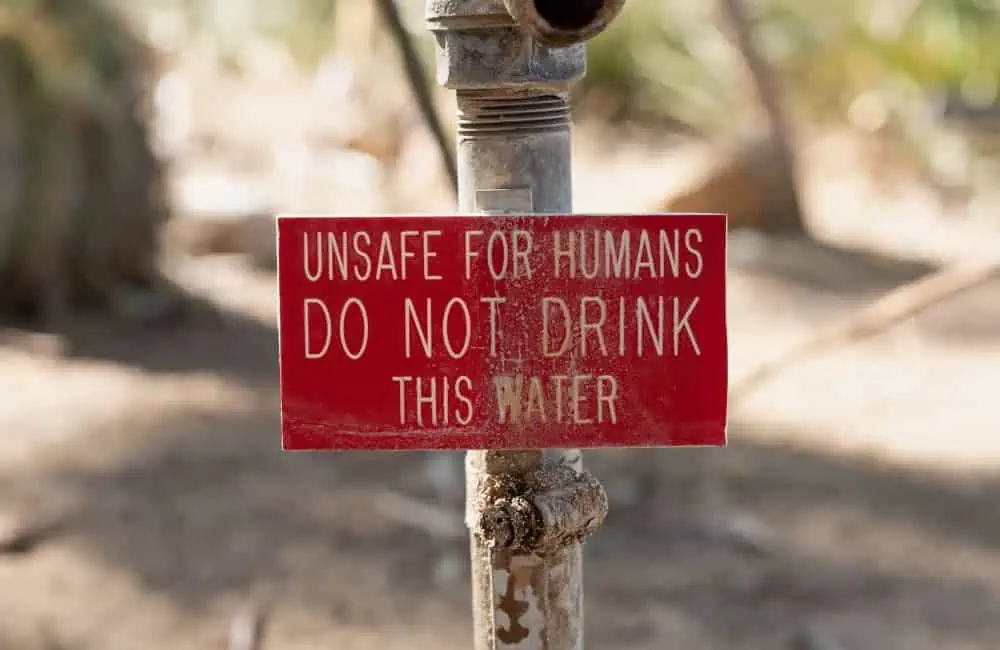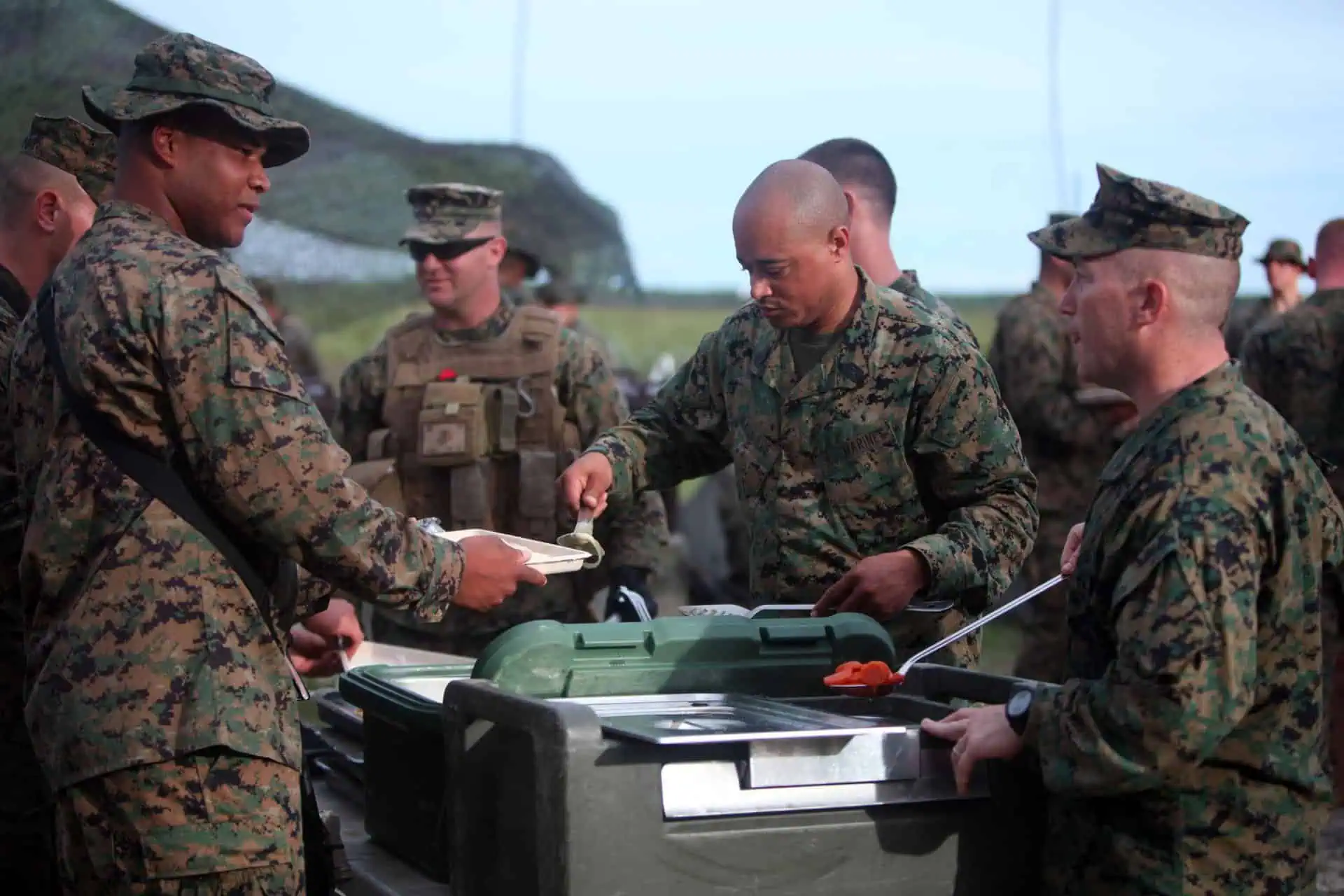Is Camp Geiger Part of Camp Lejeune Water Contamination?
- Last Updated: June 12th, 2025

Attorney Jessica Paluch-Hoerman, founder of TruLaw, has over 28 years of experience as a personal injury and mass tort attorney, and previously worked as an international tax attorney at Deloitte. Jessie collaborates with attorneys nationwide — enabling her to share reliable, up-to-date legal information with our readers.
Legally Reviewed
This article has been written and reviewed for legal accuracy and clarity by the team of writers and legal experts at TruLaw and is as accurate as possible. This content should not be taken as legal advice from an attorney. If you would like to learn more about our owner and experienced injury lawyer, Jessie Paluch, you can do so here.
Fact-Checked
TruLaw does everything possible to make sure the information in this article is up to date and accurate. If you need specific legal advice about your case, contact us by using the chat on the bottom of this page. This article should not be taken as advice from an attorney.
Is Camp Geiger Part of Camp Lejeune Water Contamination?
Camp Geiger is a Marine Corps base that is part of a larger base, Camp Lejeune, though the two camps are not geographically connected.
Camp Geiger is located in Jacksonville, North Carolina, approximately 10 miles south of the main camp.
The United States Marine Corps School of Infantry East is located in Camp Geiger and is attended by roughly 20,000 Marines from the Eastern Recruiting Region at any given time.

According to the Agency for Toxic Substances and Disease Registry (ATSDR), Camp Geiger — along with Courthouse Bay, New River, Camp Johnson, and Rifle Range — is served by uncontaminated water systems.
While Camp Geiger is part of Camp Lejeune, the water at that specific location was not found to be contaminated.
Still, that doesn’t mean that service members and others who lived at Camp Lejeune couldn’t have been exposed to water contaminants in other areas of the base.
Table of Contents
Water Contamination at Camp Lejeune
The ATSDR has determined that water contamination at Camp Lejeune began sometime around 1953 at the Hadnot Point water treatment facility.
The drinking water system began operating in this area of the camp as early as 1941, when the site was first being developed, but the contamination did not formally begin until nearly 12 years later.

A volatile organic compound (VOC) known as TCE (trichloroethylene) was later discovered to be the primary contaminant at the Hadnot Point plant.
Other chemicals, including vinyl chloride, benzene, PCE (tetrachloroethylene), and DCE (dichloroethylene), were also found at Hadnot Point.
PCE was the main contaminant at the Tarawa Terrace treatment facility.
The ATSDR believes that PCE began affecting the Tarawa Terrace water supply around 1957.
Tragically, these sites were not thoroughly tested until the early to mid-1980s, and the most highly contaminated wells at Tarawa Terrace and Hadnot Point were not shut down until 1985.
Potentially Contaminated Sites at Camp Lejeune
As noted, Camp Geiger’s water supply did not contain any of the solvents found in the water at the Tarawa Terrace or Hadnot Point facilities.
Residents of Camp Geiger received drinking water from a separate, uncontaminated source.
However, the water supply in many other areas of Camp Lejeune was affected.
These sites include:
- Tarawa Terrace (Tarawa Terrace water system)
- Knox Trailer Park (Tarawa Terrace water system and the Montford Point/Camp Johnson water system)
- Berkeley Manor (Hadnot Point water system until June 1972, later served by the Holcomb Boulevard water treatment facility except in rare cases)
- Paradise Point (Hadnot Point water system until June 1972, served by Holcomb Boulevard system from June 1972 onward with occasional exceptions)
- Midway Park (Hadnot Point water system until June 1972, later served by the Holcomb Boulevard system with a few exceptions)
- Hospital Point (Hadnot Point water treatment system)
- Barracks (Hadnot Point water system)
- The majority of bachelor housing (Hadnot Point water system)
Although Berkeley Manor, Paradise Point, Midway Park, and Watkins Village were all served by the Holcomb Boulevard system from 1972 on, there were times when service members and others in these areas continued to receive water from the Hadnot Point system post-June 1972.
During dry spells in the spring and summer months, additional water would sometimes be pumped into these sites from the Hadnot Point system.
These areas also received water from the Hadnot Point system for two weeks in early 1985 while repairs were being performed on the Holcomb Boulevard system.
This was just before the most prominent contaminated wells at Camp Lejeune were shut down for good.
Camp Lejeune Lawsuit
Anyone who lived and worked at Camp Lejeune for at least 30 days from August 1, 1953, to December 31, 1987, could soon be entitled to seek compensation through a federal claim if they were diagnosed with cancer or another serious disease.
The Camp Lejeune Justice Act of 2022 would overrule the North Carolina statute of repose that is currently preventing victims of water contamination at Camp Lejeune from taking legal action.
Currently, lawsuits cannot be brought against polluters in North Carolina if ten years have passed since the defendant’s misconduct began.
As a result, victims of water contamination at Camp Lejeune have had no legal recourse to seek compensation for damages they suffered, including medical expenses, lost wages, and pain and suffering, among other losses.
If the new bill is passed, that will change.
However, to obtain compensation, victims will still have to prove that their condition occurred because of the government’s negligence or the negligence of another party.
If you lived at Camp Lejeune for a minimum of 30 days between August 1, 1953, and December 31, 1987, you could qualify for a Camp Lejeune water contamination lawsuit.
If the new bill is approved as expected, the Illinois attorneys at TruLaw will be prepared to begin litigating cases.
Visit our Camp Lejeune Contaminated Water Lawsuit page and get an instant case assessment.

Managing Attorney & Owner
With over 25 years of legal experience, Jessica Paluch-Hoerman is an Illinois lawyer, a CPA, and a mother of three. She spent the first decade of her career working as an international tax attorney at Deloitte.
In 2009, Jessie co-founded her own law firm with her husband – which has scaled to over 30 employees since its conception.
In 2016, Jessie founded TruLaw, which allows her to collaborate with attorneys and legal experts across the United States on a daily basis. This hypervaluable network of experts is what enables her to share the most reliable, accurate, and up-to-date legal information with our readers!
Additional Camp Lejeune Water Contamination Lawsuit resources on our website:
Here, at TruLaw, we’re committed to helping victims get the justice they deserve.
Alongside our partner law firms, we have successfully collected over $3 Billion in verdicts and settlements on behalf of injured individuals.
Would you like our help?
At TruLaw, we fiercely combat corporations that endanger individuals’ well-being. If you’ve suffered injuries and believe these well-funded entities should be held accountable, we’re here for you.
With TruLaw, you gain access to successful and seasoned lawyers who maximize your chances of success. Our lawyers invest in you—they do not receive a dime until your lawsuit reaches a successful resolution!
AFFF Lawsuit claims are being filed against manufacturers of aqueous film-forming foam (AFFF), commonly used in firefighting.
Claims allege that companies such as 3M, DuPont, and Tyco Fire Products failed to adequately warn users about the potential dangers of AFFF exposure — including increased risks of various cancers and diseases.
Depo Provera Lawsuit claims are being filed by individuals who allege they developed meningioma (a type of brain tumor) after receiving Depo-Provera birth control injections.
A 2024 study found that women using Depo-Provera for at least 1 year are five times more likely to develop meningioma brain tumors compared to those not using the drug.
Suboxone Tooth Decay Lawsuit claims are being filed against Indivior, the manufacturer of Suboxone, a medication used to treat opioid addiction.
Claims allege that Indivior failed to adequately warn users about the potential dangers of severe tooth decay and dental injuries associated with Suboxone’s sublingual film version.
Social Media Harm Lawsuits are being filed against social media companies for allegedly causing mental health issues in children and teens.
Claims allege that companies like Meta, Google, ByteDance, and Snap designed addictive platforms that led to anxiety, depression, and other mental health issues without adequately warning users or parents.
Transvaginal Mesh Lawsuits are being filed against manufacturers of transvaginal mesh products used to treat pelvic organ prolapse (POP) and stress urinary incontinence (SUI).
Claims allege that companies like Ethicon, C.R. Bard, and Boston Scientific failed to adequately warn about potential dangers — including erosion, pain, and infection.
Bair Hugger Warming Blanket Lawsuits involve claims against 3M — alleging their surgical warming blankets caused severe infections and complications (particularly in hip and knee replacement surgeries).
Plaintiffs claim 3M failed to warn about potential risks — despite knowing about increased risk of deep joint infections since 2011.
Baby Formula NEC Lawsuit claims are being filed against manufacturers of cow’s milk-based baby formula products.
Claims allege that companies like Abbott Laboratories (Similac) and Mead Johnson & Company (Enfamil) failed to warn about the increased risk of necrotizing enterocolitis (NEC) in premature infants.
Here, at TruLaw, we’re committed to helping victims get the justice they deserve.
Alongside our partner law firms, we have successfully collected over $3 Billion in verdicts and settlements on behalf of injured individuals.
Would you like our help?
